Heavy Duty Radiator
The main component of the cooling system, a radiator’s main purpose is to keep an engine at the optimal operating temperature, which it achieves by absorbing excess heat generated by the engine and lowering the coolant temperature with the air passing through the vehicle’s front grille. The Heavy Duty version of the radiator fits light and heavy-duty trucks, and off-highway equipment. They are built to sustain more stress and more heat generated over long periods of time.
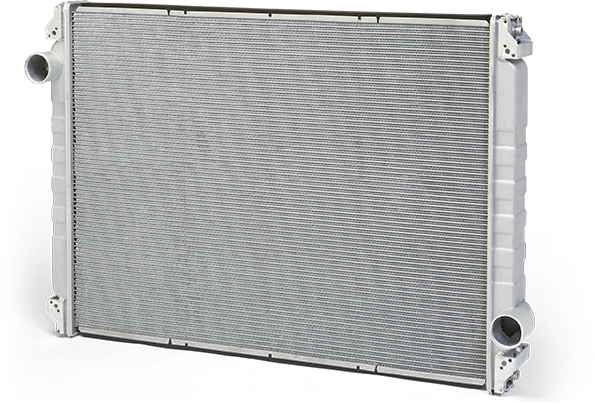
- 100% new, no core charge
- Stress relief cuts and clevis pins added to reduce stress on the headers
- Funnel-shaped tube to header for durability and strength
- Highest quality materials, workmanship and tooling
- Every unit is pressure and fit-tested
- Transit tested with robust packaging to shield part from damage in shipping
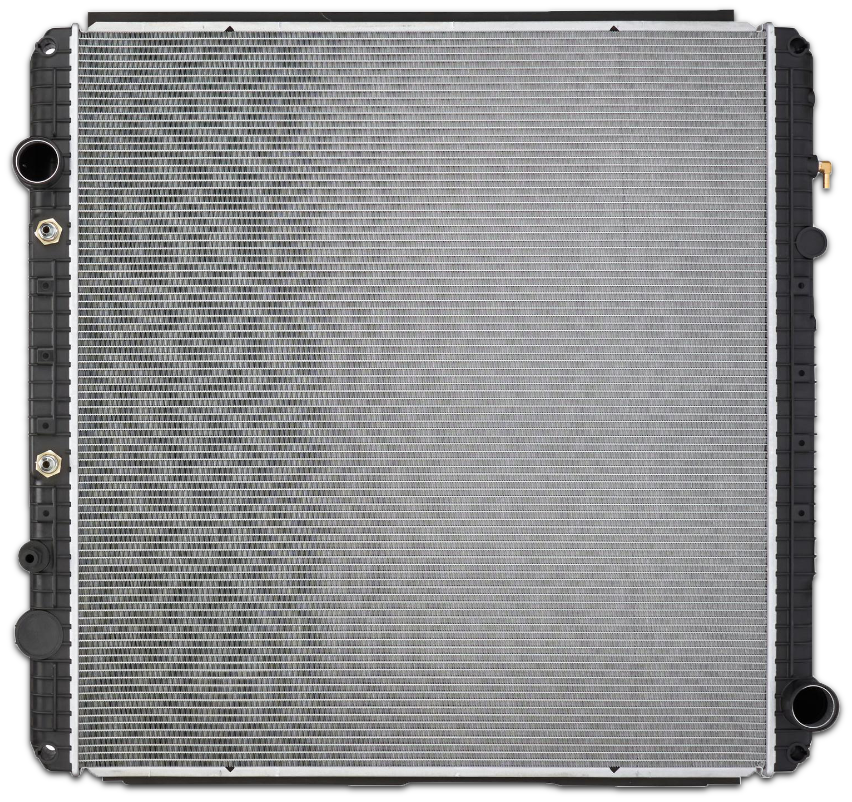
- Heavy duty tanks with reinforcement ribs to prevent flexing and failure
- Reinforcement plate added on the inner shape to strengthen the core
- Thermal tested under real life temperature simulation
- Thermal approved gaskets for the most extreme weather conditions
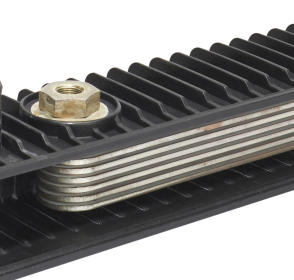
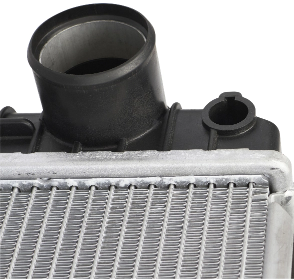
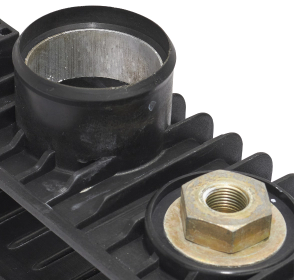

Related Products
Other Spectra Premium heavy duty radiators
Accessories available
- Radiator Installation Accessory
- Radiator Mount
- Core gasket
- Coolant tester
- Radiator cap
Common Heavy Duty Radiator Failure Symptoms
- Leaking coolant
- Overheating engine
- Deposits in the coolant
- Reducing coolant level
Common Causes of Failure
Electrolysis
Electrolysis problems appear when an electric current circulates in a cooling system. Electrolysis is the first cause of failure for aluminum radiators and has increased with the rising number of electric and electronic accessories.
Contamination
Cooling systems use a 1:1 mix of distilled water and antifreeze to absorb engine heat and protect against corrosion. Contaminated coolant increase the fluid acidity which wears down the aluminum until leaks start to appear.
Collision
As a front-end part, radiators are often involved in collisions. Even if the initial impact does not damage the radiator, smaller leaks in the cooling system can be found afterwards which also warrants radiator replacement.
Radiator replacement importance
If the radiator fails and the engine overheats, it could result in irreversible damage to the engine. When replacing your radiator, it is important to understand the root cause of failure: proper cooling system maintenance. It’s important to inspect the radiator pressure cap and thermostat for proper operation. The coolant reservoir needs to be inspected for cracks and leaks. The radiator cooling fan needs to be inspected for proper engagement. The water pump needs to be inspected for coolant leaks, and last but not least, the engine coolant needs to be tested for contamination. Performing a complete cooling system flush is strongly recommended when replacing any cooling system part.
